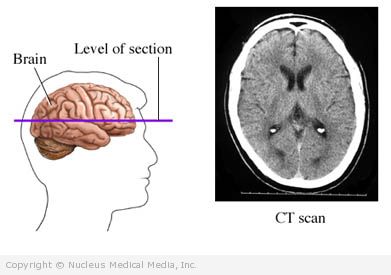Huntington’s Disease
(Huntington Chorea; HD)
Huntington’s disease – Definition
Huntington’s disease (HD) is an inherited disorder that affects the brain. HD causes slow, progressive degeneration of nerve cells in certain areas of the brain. Eventually, HD results in:
- Abnormal body movements
- Gradual deterioration or loss of intellectual abilities ( dementia)
- Behavior problems
Huntington’s disease – Causes
HD is caused by a faulty gene on chromosome #4. All people who inherit the faulty gene may eventually develop HD.
Huntington’s disease – Risk Factors
These factors increase your chance of developing HD:
- Family members with HD: Each person whose parent has HD has a 50% chance of inheriting the disorder.
- Age: Onset of symptoms range from 35-50 years old. Juvenile cases occur in people less than 20 years of age.
Huntington’s disease – Symptoms
Symptoms are mild at first and are often barely noticeable but usually worsen over 15-20 years.
Physical symptoms may include:
- Abnormal body movements that worsen over time, including:
- Sudden jerks or uncontrolled movements of the limbs or trunk
- Facial grimacing
- Continuous need to turn head and shift gaze
- Walking that is unsteady or dance-like
- Difficulty with eating, dressing, sitting, and caring for oneself
- Difficulty swallowing
- Grunting or poor articulation of speech
- Weight loss
Intellectual and emotional symptoms may include:
- Trouble with attention and awareness
- Confusion or disorientation
- Loss of memory
- Loss of judgment
- Loss of ability to think rationally
- Irritability and moodiness
- Depression (common)
- Anxiety
- Social withdrawal or antisocial behavior
- Irresponsible behavior
- Obsessive-compulsive behavior
- Personality changes
- Psychosis — a severe emotional and behavioral disorder that often interferes with a person’s ability to relate to others and to function in daily life
- Paranoia — a mental disorder that involves feelings of being watched, followed, or harmed by others
- Hallucinations — the perception of a thing or person that is not present
Ultimately, HD can:
- Cause the loss of the physical and mental ability to care for oneself
- Cause severe disability, making full-time or nursing home care necessary
- Result in death, often due to a fall or pneumonia
Huntington’s disease – Diagnosis
The doctor will ask about your symptoms and medical history (including family medical history). A physical exam will be done. Tests may include:
- CT scan — a type of x-ray that uses a computer to make pictures of the brain
- MRI scan — a test that uses magnetic waves to make pictures of the brain
- PET scan — a test that uses radioactive isotopes (substances that are absorbed by certain areas of the brain) to assess brain function
- Blood tests — to rule out other causes of symptoms
There is a test that can determine if a person has inherited the gene for HD. This test may help to make the diagnosis of HD. It may also help to determine if a person has inherited the HD gene before symptoms appear. Genetic counseling is recommended before taking this test to review risks and benefits.
Huntington’s disease – Treatment
There is no cure for HD. Treatment aims to help control symptoms.
Medications
Drugs can help control abnormal movements and emotional symptoms of HD. These include:
- Tetrabenazine
- Sedatives or minor tranquilizers, such as benzodiazepines
- Major tranquilizers, like haloperidol or phenothiazine
- Antidepressants
Physical Fitness
Staying physically active helps people with HD to function better and longer. Often physical and occupational therapy may be of some benefit.
Huntington’s disease – Prevention
There is no way to prevent the onset of HD if a person has inherited the gene for the disorder. Medicines aimed at slowing and treating the disease progression are being studied. A prospective parent with HD or a family history of HD can seek genetic counseling when deciding whether or not to have children. Genetic counseling is extremely important since children of parents with HD will have a 50% chance of inheriting the condition.

